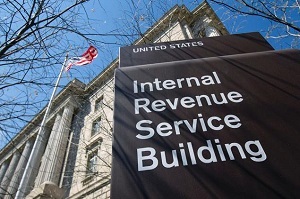How Congress and the IRS Can Fulfill the Promise of the Tax Whistleblower Program

Constantine Cannon whistleblower partner Michael Ronickher wrote on the Taxpayers Against Fraud blog about three key changes the IRS could make to help its whistleblower program reach its full potential.
The program, which provides rewards of 15-30% of the funds collected by the IRS because of a tip, is undeniably important. As Mike wrote, “Since 2007, the IRS has recovered $6.14 billion based on information from whistleblowers, and it has paid $1.01 billion in whistleblowers rewards. That is both a big recovery for the public fisc and a great return on the investment in whistleblowers.
“But there is much, much more to do. That $6 billion comes out to under $500 million recovered per year on average. In comparison, those who dodge taxes are responsible for a tax gap generally estimated at around $400 billion per year.”
He proposed three important changes that could improve the program:
- Be more transparent. Carveouts in the taxpayer privacy laws permit—and in some instances require—the IRS to communicate with whistleblowers about the status of their tips. The agency should be more communicative, which would improve relations, encourage more meritorious tips, and reduce unnecessary litigation over awards.
- Leverage whistleblowers’ knowledge and expertise. The IRS is under-resourced and should tap the private-public partnership intended by the whistleblower program when it is carrying out audits and investigations. The IRS has understandably been reluctant as an institution to open its audit function up to outsiders, but the massive success of the federal False Claims Act and the SEC program, which both work more closely with whistleblowers, show the enormous benefits that could be gained.
- Accelerate the tip and award processes. Recent hiring, plus legislative and administrative changes, have improved the timeline, but even optimistic estimates from the IRS put the timeline from tip to award at five to seven years. Any streamlining will reap big rewards for the program.
Other critical improvements would require Congressional action. Those include:
- Boosting IRS funding so that it can handle the meritorious tips that come in the door.
- Removing the bar to actions under the False Claims Act related to tax fraud would make the Government’s most powerful anti-fraud tool available in the tax arena, with enormously positive consequences. A growing list of jurisdictions like New York, Illinois, and D.C., have lifted the bar, to big financial success, such proposals have generally gone nowhere at the federal level.
- Providing for meaningful, anonymous review in the Tax Court of the IRS’s award determinations, which is important for getting clarity about standards and ensuring that those deserving of awards are treated properly.
- Funding the IRS whistleblower office out of a portion of the tax collections attributable to to the work of whistleblowers.
Any of these changes would move the needle towards greater success in a program that has achieved a lot and has so much room to grow.
Read More
- How to Become an IRS Whistleblower
- IRS Whistleblower Program
- Tax Fraud and Violations
- Tax Enforcement Actions
- Contact Us Confidentially
Tagged in: CC Lawyers, IRS Whistleblower Reward Program, Tax Fraud, Whistleblower Rewards,